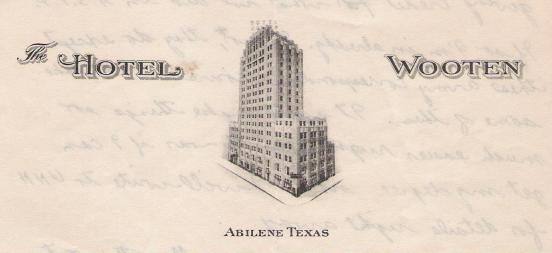Dear Mrs. Russell,
Land ho! Yes, we sighted terra firma off the port bow today, so our trip is on its last legs. At least this portion of it. I couldn’t have asked for a more pleasant voyage. Naturally, many of us are getting restless from lack of activity. I am a good loafer, tho, if you want to call it that. I enjoy reading, talking and just looking. Everything about the trip has been exciting, and much of it actually beautiful. There’s nothing like looking out across the sea as clean and blue as you see in pictures, or watching the white, white foam made when the swath cut by the ship’s prow breaks into the swell of the ocean. At night, the moon makes it just as nice—it’s a gibbous moon, they call it. Between half and full.
Now that we are close in, and sitting in the harbor, the water is yellowish green, and strangely enough, rougher than anything we saw on the open sea. Sea gulls have been flying around us all day, and I have spent a lot of time watching them with my binoculars. Scanning the shore line was fun, too. Picked out a lot of details on the first foreign land I’ve seen. Some delay is keeping us from disembarking right away. From here, tho, we can see the ships of several different countries coming and going.
Have just finished reading “The Great Impersonation,” an entertaining story about secret service in the first world war. It didn’t take me long to go thru that. Now I am putting a lot of time on the a book on early Am. Hist.—“The Struggle for American Freedom,” by Morais. The book just came out this spring, and is interesting to me for quite a few reasons. It follows up “Western Star” with something more interpretive of the same period. Morais is a liberal writer, a little in line with Marx, something of an economic determinist. Don’t necessarily agree with him, but he interprets qs well as presents facts. Finally, the man who loaned me the book is a member of my platoon named Sokol, an ex-labor leader. His is a strong union man and plans to into organization again after the war. An Ohio State man, husband of a woman who is a book agent. That’s how he gets these new books—anything he wants. He really thinks about history. May try to bend everything to fit his theory about the power of the organized worker, but he goes deeper than anybody I’ve met in this outfit.
So many things are going on, I wish I was keeping a diary. But that would involve dates and places that are taboo now. I’m afraid the sequence of things from Barkely to P.O.E. to here is already hazy.
‘Bye now, Bun. More later.
All my love,
Wallace
Wallace's Tent on Salisbury Plain

Writing a letter with candle on clipboard, see Oct. 16 letter
Subscribe to:
Post Comments (Atom)








No comments:
Post a Comment